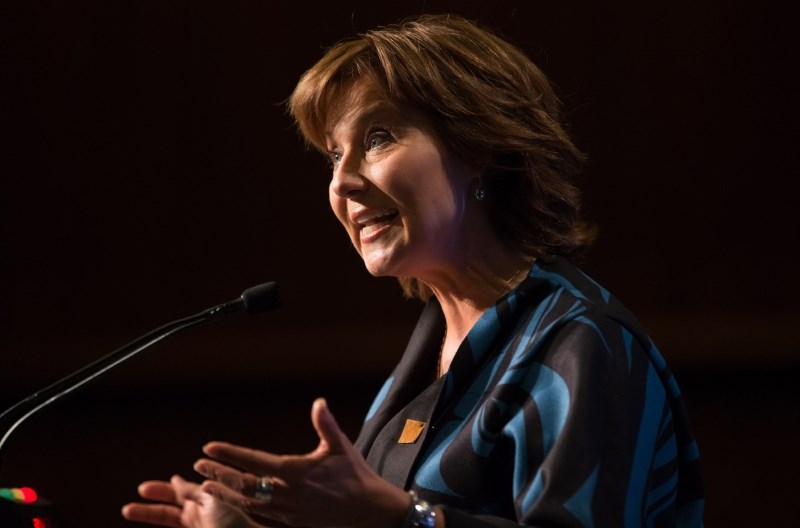Premier Christy Clark has pledged to invest a further $10 million in the ongoing battle against an “epidemic” of drug overdoses in B.C.
In a speech to the Union of B.C. Municipalities convention in Victoria, Clark said the powerful synthetic opioid fentanyl has become “a real plague” across the province.
“I think all of us see people and know people for whom it has had absolutely devastating consequences, families that are so irreparably harmed.”
Clark said her Liberal government will dedicate $5 million to support a new B.C. Centre for Substance Use devoted to addiction research and improving the quality of care that people receive.
Dr. Evan Wood, medical director of addiction services at Vancouver Coastal Health, will serve as the centre’s interim director.
Clark said the remaining $5 million will go to the joint task force on overdose prevention.
The money will be used to:
• issue police with the naloxone and teach them how to use the antidote
• increase community awareness of fentanyl dangers
• support the RCMP’s clandestine laboratory enforcement and response team
• enhance coroner investigations of overdose deaths
• expand supervised consumption services.
Clark said her government has done more than other provinces to tackle the rise in overdose deaths.
“We recognize that we’ve really got to step up those efforts,” she said. “It is absolutely urgent that we get more done.”
The latest overdose statistics from the B.C. Coroners Service showed Island Health with the highest death rate so far this year among all health authorities.
There were 93 overdose deaths in the region to the end of August, compared with 488 deaths province-wide. Fentanyl was involved in more than 60 per cent of the provincial deaths, the coroners service said.
B.C. NDP Leader John Horgan has said the high rate of deaths on the Island points to the lack of treatment and recovery services in the region.
“I’m pleased to see some action,” he said Wednesday.
Clark also committed $148.5 million for a new fund to help communities improve their water and wastewater systems. The costs of approved projects will be shared by the federal (50 per cent), provincial (33 per cent) and local governments (17 per cent).
The province also inked a deal with the B.C. Government and Service Employees’ Union to make it easier for seasonal forest firefighters to get health and welfare benefits.



